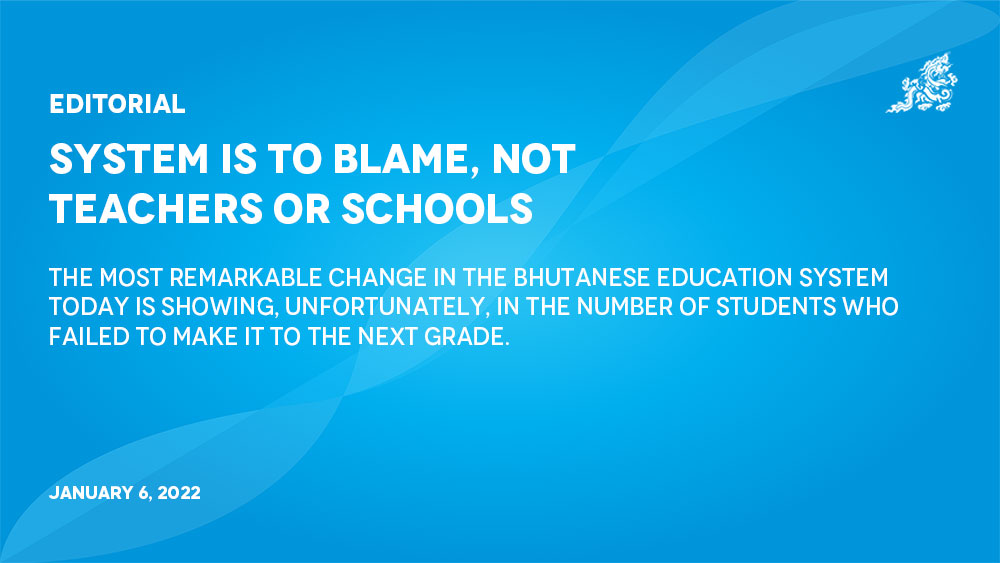The most remarkable change in the Bhutanese education system today is showing, unfortunately, in the number of students who failed to make it to the next grade.
Are government schools better than private schools? This seems to lead the debate today, among parents, educators, and observers.
Government schools have a larger pool of trained teachers; private schools have care for the development of each student. The debate, thus, is missing the point: what went wrong, and, how?
The discourse should lead us to a clearer future for Bhutanese education.
The Bhutanese education system will be forever stalled at some point because of many factors in play. For example, why must anyone taught and groomed to start and lead a textile industry even as we have much to give and gain from the repositories of our age-old cultures and traditions?
And, for that matter, why must a child dream of space and robotics when we can’t—and have no way of producing—even the basic materials needed to take us beyond our flights of fantasy?
Those who are in the habit of cutting the cackle might argue that creating, or raising, a smart generation, should above all be the national objective. It’s a very pretty and heavily-loaded rhetoric, agreed, but we must also, at the same time, have a clear sense of the future: where is Bhutan’s education system heading to?
The real change we need is in the syllabus, in keeping with new opportunities and challenges we face, and will continue to face—making education relevant to the changing times. That alone will not do, however; we will need robust and sensible ways of grading the progress of every child in a class.
There has to be some dynamism in the system—some courage to deviate from the “norm” and do things a little differently. Teachers agree, but do we even dare challenge such a thought?
The biggest question facing us today is what are we gaining from educating thousands of children year after year. This question is more relevant in the country that provides free education, paid for by the State.
There will always be some resistance to change, but we have already made past some of the most difficult hurdles. Making education relevant to the changing times is one; making the system itself flexible and dynamic is another, entirely.
We can certainly dream about space technology and cutting-edge science in the areas of medicine and manufacturing, why not, but we must also give reality to these awesome dreams.
The point is, though, a start has been already made. We can’t look back. The debate must be dignified with greater national dreams than the petty issue of a pass and fail percentage. This, simply put, is taking Bhutanese education system forward.


